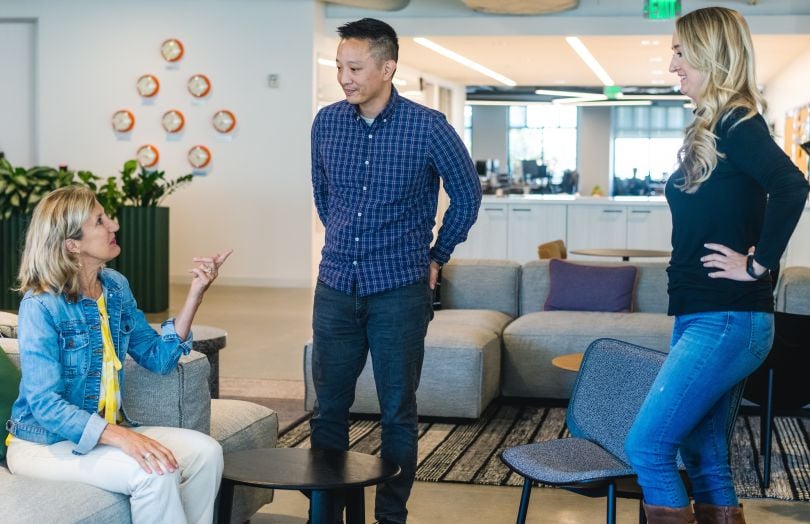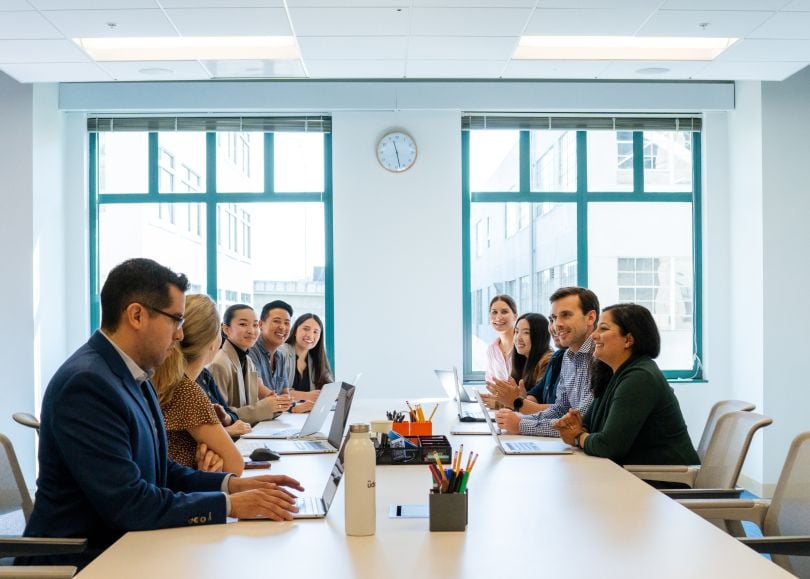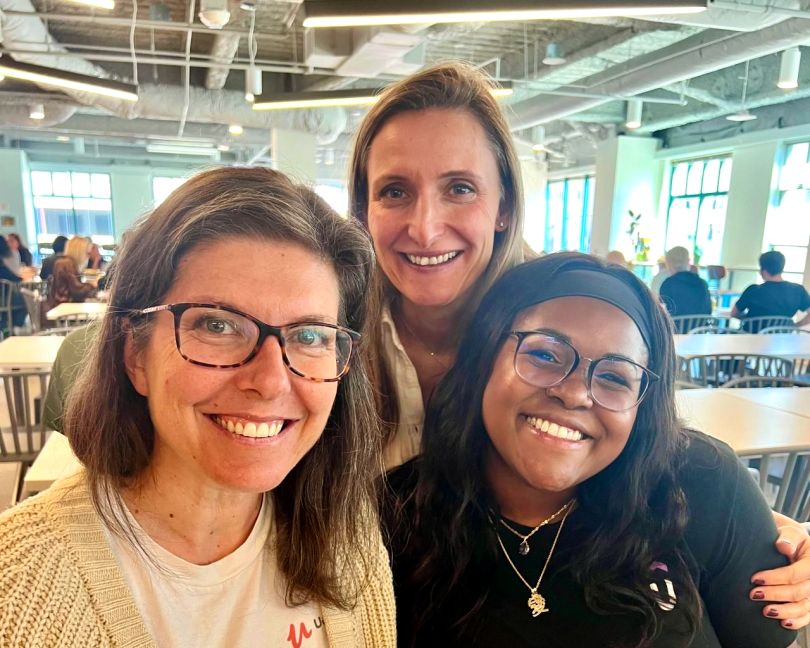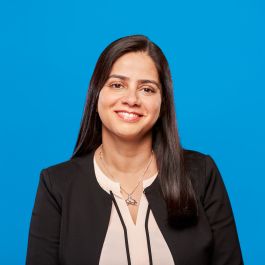Four years ago, Edward Hu was starting a new role at Udemy, getting involved in the Asia-Pacific Network @ Udemy employee resource group and following increasingly distressing news about rising rates of hate crimes toward Asian Americans.
“As a victim of violence and hate speech myself, it was important to me to have a place where we could talk about the issues affecting our communities,” Hu told Built In. “We met both as a large group and in smaller, more intimate sessions, and we provided resources to our members, including sign-ups for pairing with Asian-American elders who felt unsafe running errands by themselves.”
In addition to community outreach, the ERG also led internal efforts, ensuring that Udemy team members from Asian backgrounds felt secure and supported at work.
“It’s important to the company’s culture that people feel safe enough to express their true selves and true concerns,” Hu said. “And as social creatures, people respond to reciprocity and become more willing to share when others share with them.”
This concept served as a call to action for Hu, who is now Udemy’s principal corporate counsel.
“I have enough distance from the traumatic events I experienced to talk about them openly, so that’s what I did,” he said. “I talked about my personal experiences and then how I reacted to them, and it was very touching to hear people really open up about their own experiences. We had a spot of therapy in the middle of our workday, which was unexpected and very warming.”
While the emotional intensity of the ERG’s work in 2020 and 2021 has abated in the years following, Udemy’s commitment to supporting diversity, equity and inclusion has continued to flourish.

According to Brena Bessa, Udemy’s lead for belonging, equity, diversity and inclusion, ERGs remain crucial for the company’s investment in attracting and retaining talent from underrepresented backgrounds.
“As someone who identifies with multiple historically marginalized identities, I know all too well what it feels like to not belong somewhere. My personal mission is to create a space where everyone feels like they can be their earnestly authentic selves,” she said. “ERGs are not just social clubs — they also play a vital strategic role in shaping BEDI.”
Bessa returns to a phrase used by disability activists — “Nothing about us without us.”
“We cannot have a BEDI strategy or a BEDI program without involving the very people we say we want to support and include,” she said. “ERGs can be at the heart of that.”
ERGs at Udemy
In December 2023, Udemy’s ERGs united for a summit to reflect on the year and plan for 2024. Udemy’s eight ERGs helping to build an inclusive and connected culture are:
- Asia-Pacific Network @ Udemy
- Black Employee Network
- Women in Sales
- Emotional and Mental Health Oversight
- Out at Udemy
- Umigos Latinx and Hispanic Network
- Veterans at Udemy
- Women at Udemy
In 2023, the company welcomed a new vice president to its people team, Madhavi Bhasin, whose work centers around embedding BEDI across the organization.
“Our vision is to build a workplace community that reflects the rich diversity of our global learners, where differences are not only accepted but are seen as a strength,” Bhasin said. “True innovation and learning emerge from a tapestry of varied perspectives and experiences. By nurturing an environment of respect, empathy and continuous learning, we aim to inspire all Udemates to achieve their fullest potential, contributing to a world where everyone has equal access to knowledge and opportunity.”
“Our vision is to build a workplace community that reflects the rich diversity of our global learners, where differences are not only accepted but are seen as a strength.”
In order to build that deeply engaged and diverse community, Udemy launched a new annual inclusion index to measure the internal sentiments around BEDI on the team and determine which investments will lead to the greatest impact for the team. For 2024, those focuses include developing equity-centered processes for talent acquisition and development, driving community and learning efforts focused on engagement and leadership skills, intentional leadership succession planning to promote balanced retention and internal mobility, and continuing to invest in skills-centered approaches to build inclusion into Udemy’s products, services and brand.
“For us, BEDI is not an add-on — access and inclusion are core to how we run our business,” Bhasin said. As evidenced by the annual BEDI focuses, that reality is reflected in how Udemy operates internally and approaches its work as a whole.
“In democratizing access to learning and education, Udemy offers a solution to removing one of the critical barriers to opportunity,” Bhasin said. “Udemy's platform serves as a gateway for individuals from diverse backgrounds, including those who may not have followed a conventional career trajectory or lacked access to traditional education. Udemy not only addresses the skills gap but also promotes socioeconomic mobility, transforms lives through learning and contributes to building a more inclusive economy."

The drive toward building a more equitable economy is core to how Udemy approaches internal hiring and advancement, as well.
“Talent is widely distributed; opportunity is not,” Bhasin said. “With the skills gap, we have to find alternative ways to educate the population and upskill the workforce. In hiring for skills versus experience, we open up the aperture of who is a ‘qualified candidate’ and provide an opportunity for those who did not have a traditional career path or education.”
According to Bessa, this path to success for people from across a wide array of backgrounds is what makes the company great.
“I got into this work because I care about people and have always believed that people are the soul of every company. There is no Udemy without Udemates. It’s really that simple,” she said. “We can have the best ‘balanced recruiting’ strategies and hire people from lots of different backgrounds, but if folks get here and feel like they are not welcomed, they will leave and we will lose extraordinary talent.”

Hu, Bhasin and Bessa each have encountered multiple occasions on which Udemy’s culture, policies and people have served as proof that BEDI efforts have truly become an integrated part of how Udemates work.
Hu recalled requesting time off to celebrate Hanukkah with his family without encountering any questions about his observance of Jewish traditions as an Asian-American.
Bessa was able to return to her home country of Brazil following the death of a family member, supported to take the time she needed to grieve with her family while knowing her team had her work responsibilities handled.
And while Bhasin recruited for a new role, a colleague challenged her to adjust her approach to screening and interviewing to be more inclusive and flexible, rather than requiring an in-person interview at the first stage.
“At our core, regardless of our differences, we share fundamental desires,” Bessa said. “We all want to be seen, heard, respected and valued.”
“When we design programs with a people-first mindset,” she continued, “we pave the way toward that feeling of belonging we all crave. When we work to reduce biases in our hiring process, we open the door for someone to feel seen for how talented they are. When we establish channels to gather feedback and develop strategies around the feedback we receive, we create the opportunity for people to feel heard. When we address complaints of discrimination and hold people accountable for their actions, we make others feel respected. When we ensure our pay practices are equitable and provide opportunities for personal and professional growth, we help someone feel valued. Consequently, a sense of belonging naturally flourishes.”







